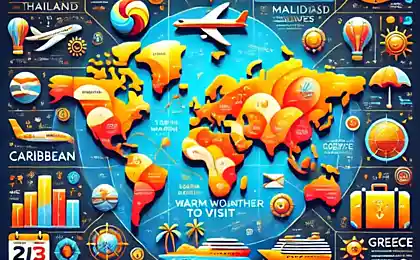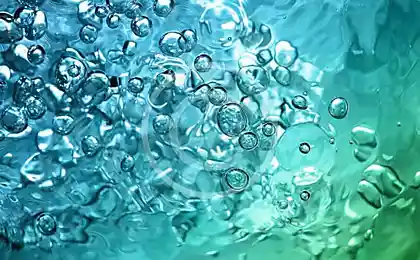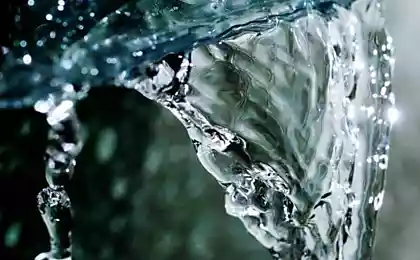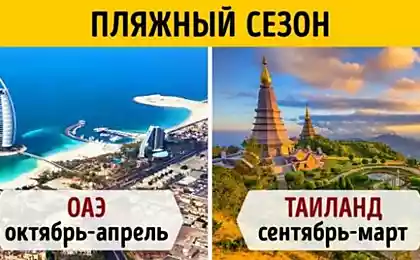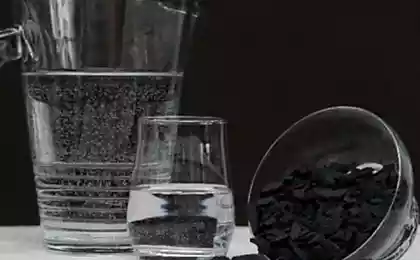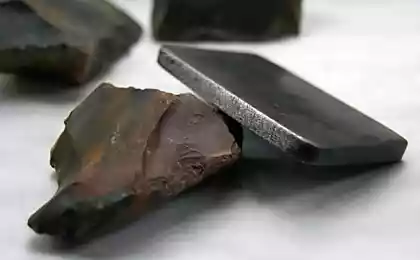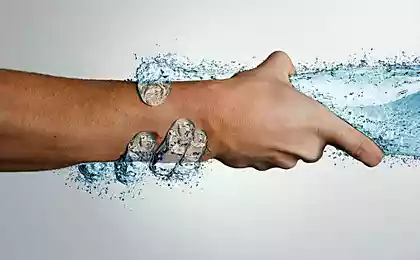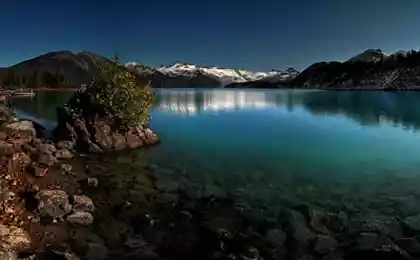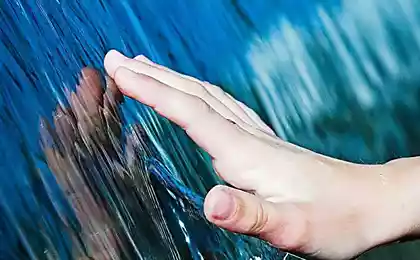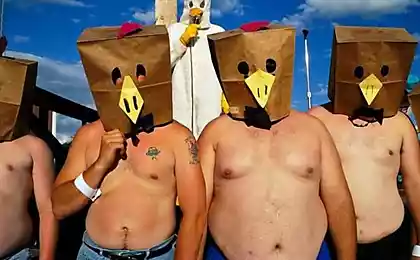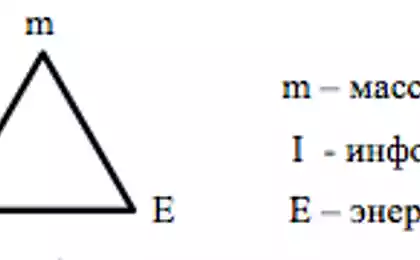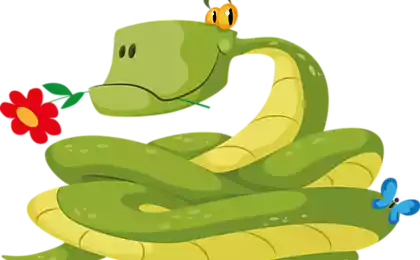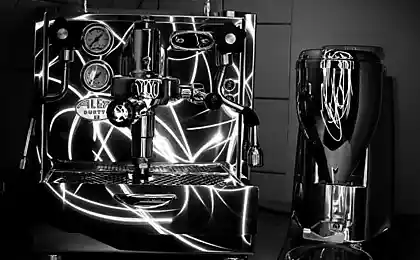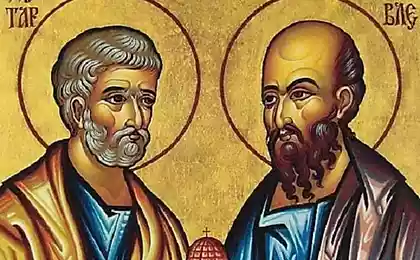1164
And in Thailand is now the New Year (22 pics + text)
Thai New Year called Songkran, is celebrated, and he was not on the night of December 31 to January 1 and April. Moreover, it is not celebrated with champagne and Olivier, and with water pistols and clay!
Tourists pleased to take part in the national festival.
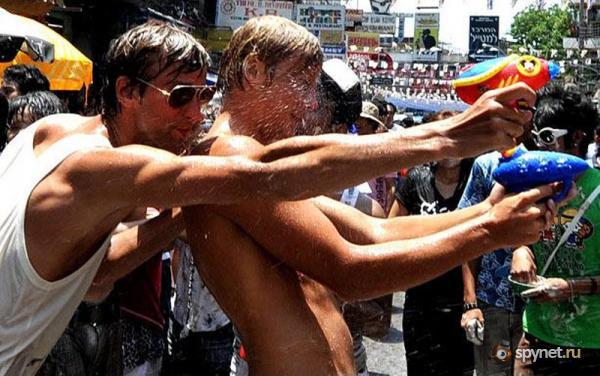
Anti-government protesters celebrate Songkran - a traditional New Year in Bangkok.
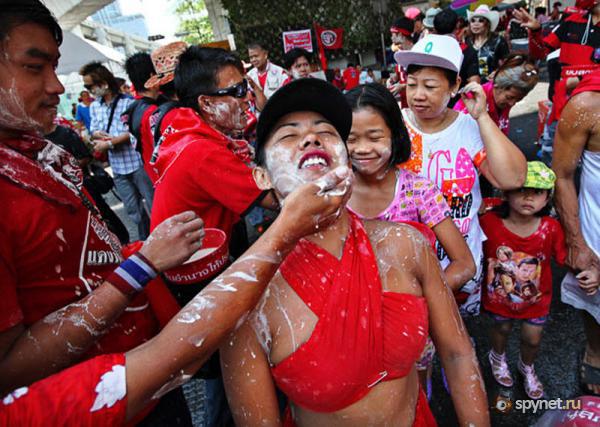
Songkran - Thai New Year, celebrated on April 13. Songkran is considered to be a Buddhist family holiday. On this day bring delicious dishes Buddhist priests, in deference to Buddhist philosophy. Home Buddha statue is washed with pure water with rose petals and jasmine. Thai youth in this day pouring water on each other.
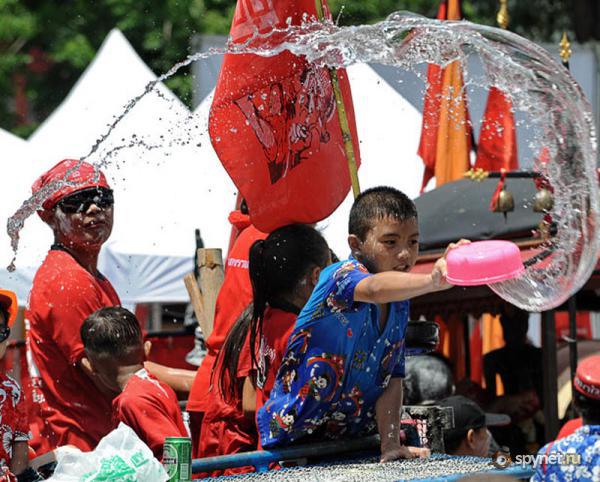
People collect water bowls to pour each other after Songkran.
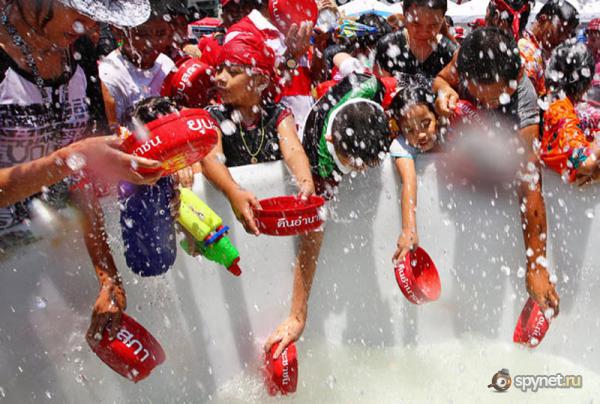
One of the oldest festivals in Thailand - Songkran - marks a change, on the ancient Indian astrological calendar.
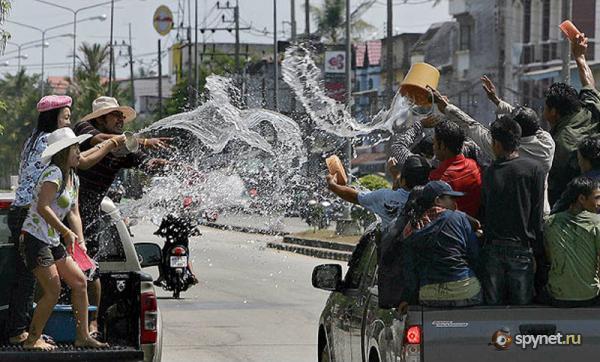
As you know, in Thailand there are three seasons: the rainy season, cold season and the hot season. The Thai New Year Songkran comes the hot season, which was soon followed by the rainy season, which marked the beginning of the traditional festival Khao Phansa.
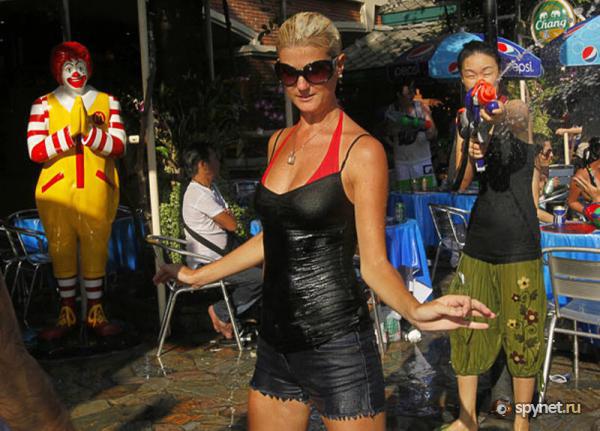
"Red Shirts" smile during the celebration of Songkran, near the Democracy Monument in Bangkok.
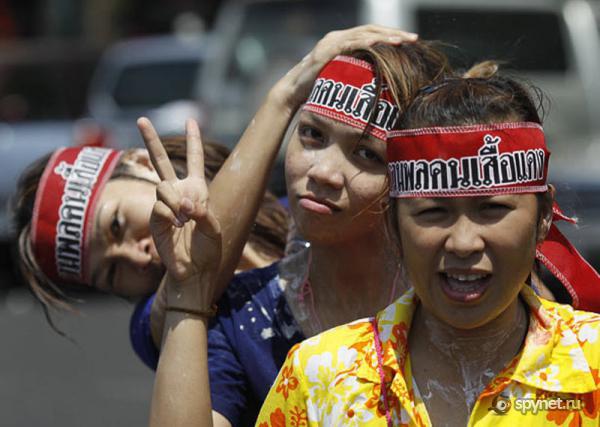
The roots of this celebration go back to ancient India, from which borrowed the name "Songkran", meaning in Sanskrit "transition", in this case, the change of seasons.
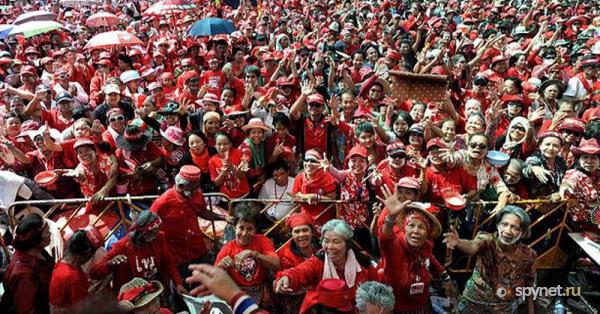
Girl celebrates Songkran during anti-government rally in central Bangkok.
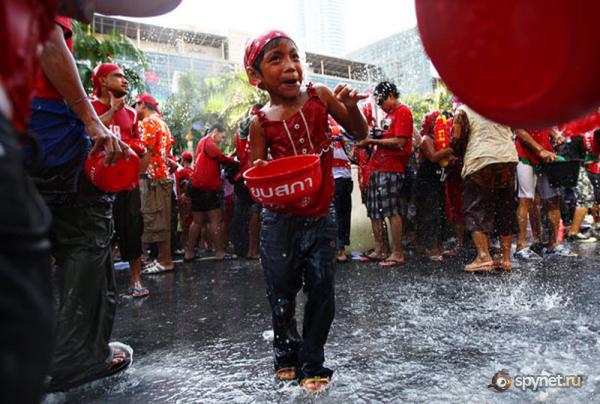
The traditional festival of pouring water symbolizing the beginning of the call to the rainy season, to get a good rice harvest.
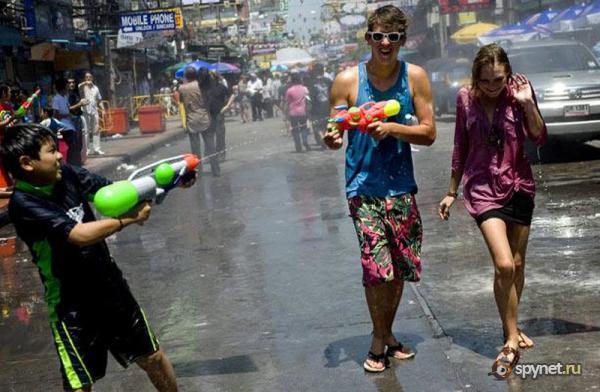
Day Songkran in Thailand, traditionally begins with the morning alms to monks (tham bun), organized a much bigger normal daily rituals.
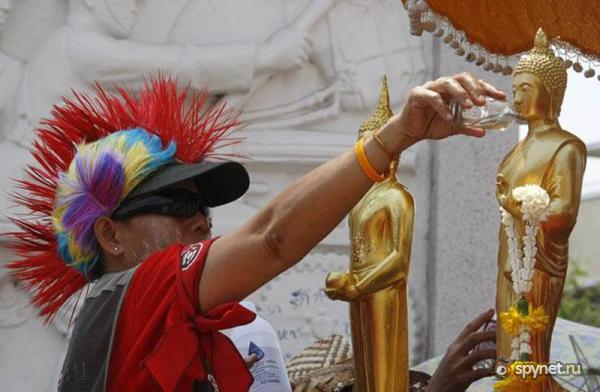
The temples at this time are beautiful rituals: home-cooked sweets, wrapped in palm leaves, Thais are in the temple with the usual alms, and in the late afternoon commit ritual "to Sai" - collect beautiful white sand, carry it into the house and build of around him Wihan (Vihara) small chedi (stupa), paying homage to the Buddha and his teachings.
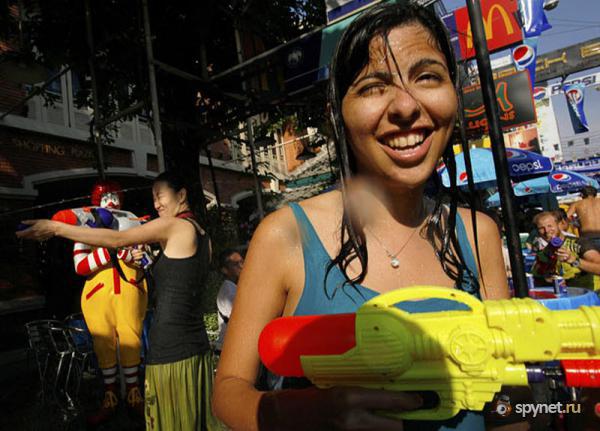
Dates of the festival in different provinces may be different, and the start date to announce further. In Bangkok, the festival usually begins on April 13.
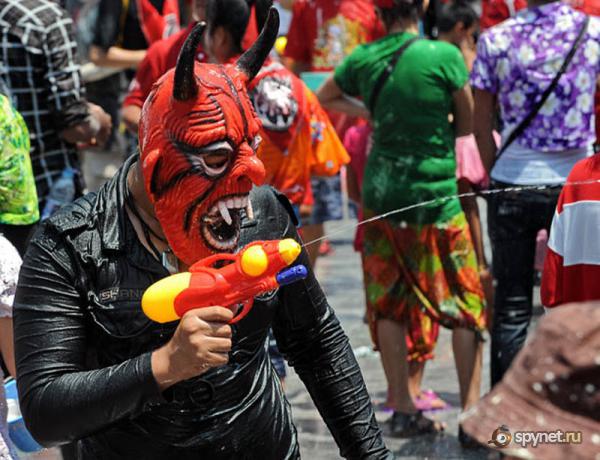
In addition, participants in the festival can smear white clay or talc. It is believed that the clay repels dirt (and in fact, shaped) and talc used throughout the population in order to personal hygiene, for the same reason as the clay in the old days.
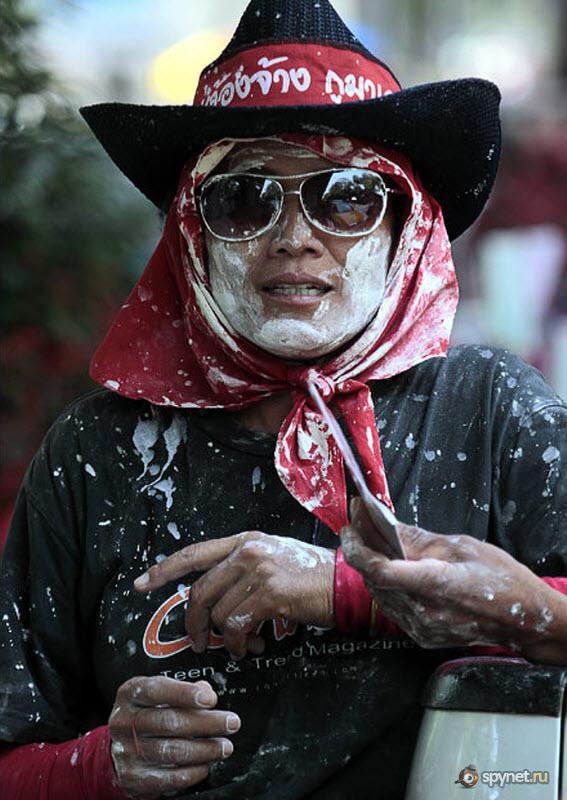
The elephant pours water tourist.
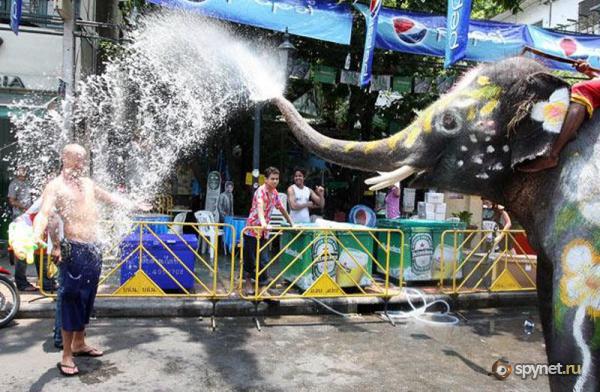
The tradition of pouring water over time has acquired a number of meanings more associated with Buddhism and the end of the hot season. Water is cleansing from all the negativity accumulated in the past year, in addition, in the hot season it brings coolness.
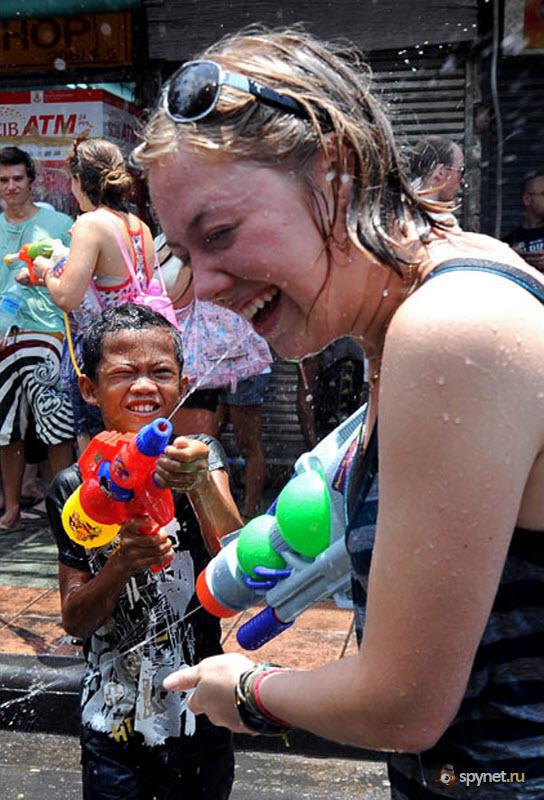
Traditionally, Songkran watered still not as abundant as you can see in the tourist areas. The sculpture of Buddha poured a small cup. From the same people watering bowls made.
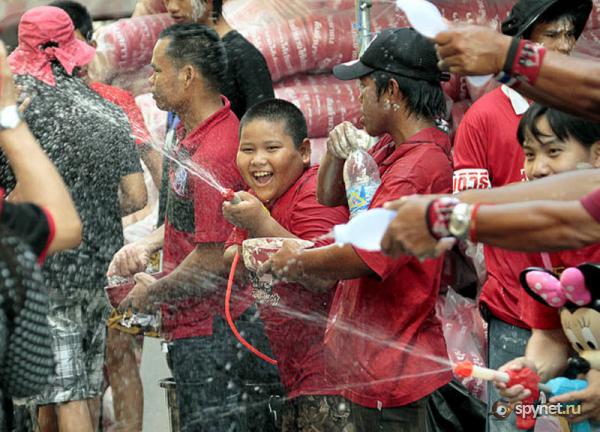
Tourists are sometimes taken for dealing with zeal.

A protester, wearing a mask of former Prime Minister Thaksin Shinawatra celebrate Songkran in Bangkok's Khao San Road.
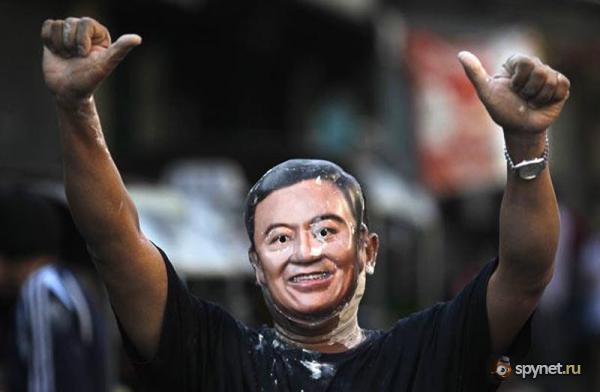
In neighboring Myanmar festvial known as Thingyan. Youth jeep pouring each other during the holiday.
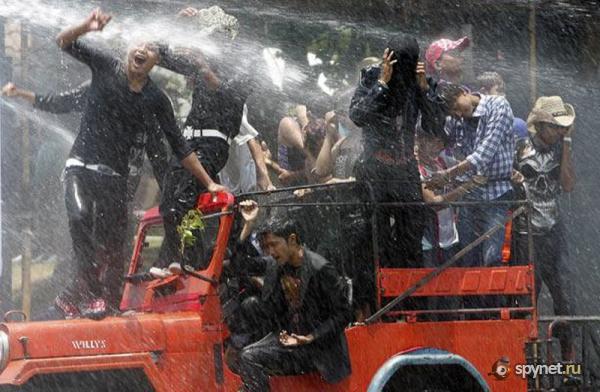
Reminds Ivan Kupala Day in Russia, although not on such a scale.
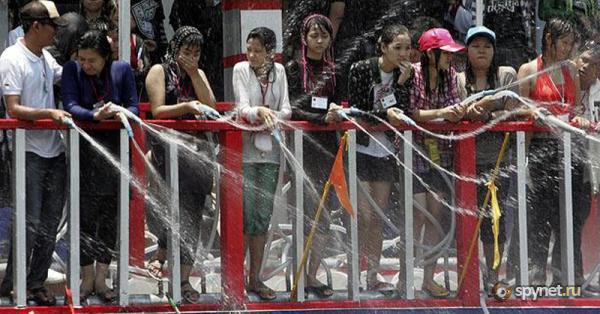
The festival is also celebrated in the neighboring Malaysia. In the photo: a man and a woman pour water on each other in Petaling Jaya, near Kuala Lumpur.
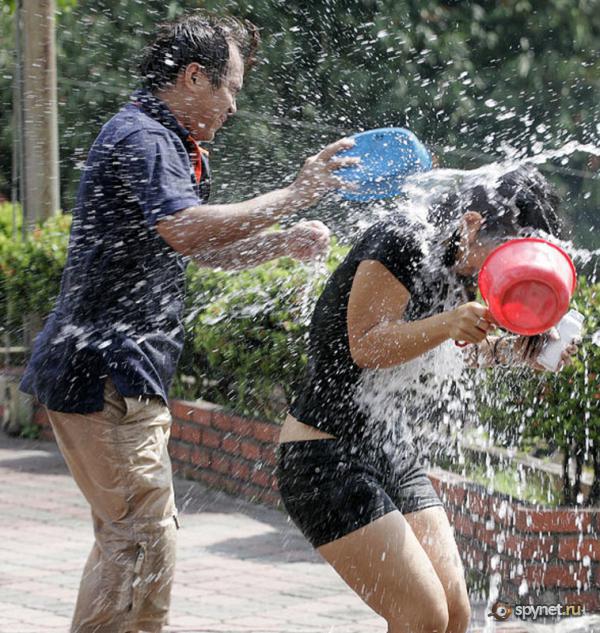
Tourists pleased to take part in the national festival.

Anti-government protesters celebrate Songkran - a traditional New Year in Bangkok.

Songkran - Thai New Year, celebrated on April 13. Songkran is considered to be a Buddhist family holiday. On this day bring delicious dishes Buddhist priests, in deference to Buddhist philosophy. Home Buddha statue is washed with pure water with rose petals and jasmine. Thai youth in this day pouring water on each other.

People collect water bowls to pour each other after Songkran.

One of the oldest festivals in Thailand - Songkran - marks a change, on the ancient Indian astrological calendar.

As you know, in Thailand there are three seasons: the rainy season, cold season and the hot season. The Thai New Year Songkran comes the hot season, which was soon followed by the rainy season, which marked the beginning of the traditional festival Khao Phansa.

"Red Shirts" smile during the celebration of Songkran, near the Democracy Monument in Bangkok.

The roots of this celebration go back to ancient India, from which borrowed the name "Songkran", meaning in Sanskrit "transition", in this case, the change of seasons.

Girl celebrates Songkran during anti-government rally in central Bangkok.

The traditional festival of pouring water symbolizing the beginning of the call to the rainy season, to get a good rice harvest.

Day Songkran in Thailand, traditionally begins with the morning alms to monks (tham bun), organized a much bigger normal daily rituals.

The temples at this time are beautiful rituals: home-cooked sweets, wrapped in palm leaves, Thais are in the temple with the usual alms, and in the late afternoon commit ritual "to Sai" - collect beautiful white sand, carry it into the house and build of around him Wihan (Vihara) small chedi (stupa), paying homage to the Buddha and his teachings.

Dates of the festival in different provinces may be different, and the start date to announce further. In Bangkok, the festival usually begins on April 13.

In addition, participants in the festival can smear white clay or talc. It is believed that the clay repels dirt (and in fact, shaped) and talc used throughout the population in order to personal hygiene, for the same reason as the clay in the old days.

The elephant pours water tourist.

The tradition of pouring water over time has acquired a number of meanings more associated with Buddhism and the end of the hot season. Water is cleansing from all the negativity accumulated in the past year, in addition, in the hot season it brings coolness.

Traditionally, Songkran watered still not as abundant as you can see in the tourist areas. The sculpture of Buddha poured a small cup. From the same people watering bowls made.

Tourists are sometimes taken for dealing with zeal.

A protester, wearing a mask of former Prime Minister Thaksin Shinawatra celebrate Songkran in Bangkok's Khao San Road.

In neighboring Myanmar festvial known as Thingyan. Youth jeep pouring each other during the holiday.

Reminds Ivan Kupala Day in Russia, although not on such a scale.

The festival is also celebrated in the neighboring Malaysia. In the photo: a man and a woman pour water on each other in Petaling Jaya, near Kuala Lumpur.

